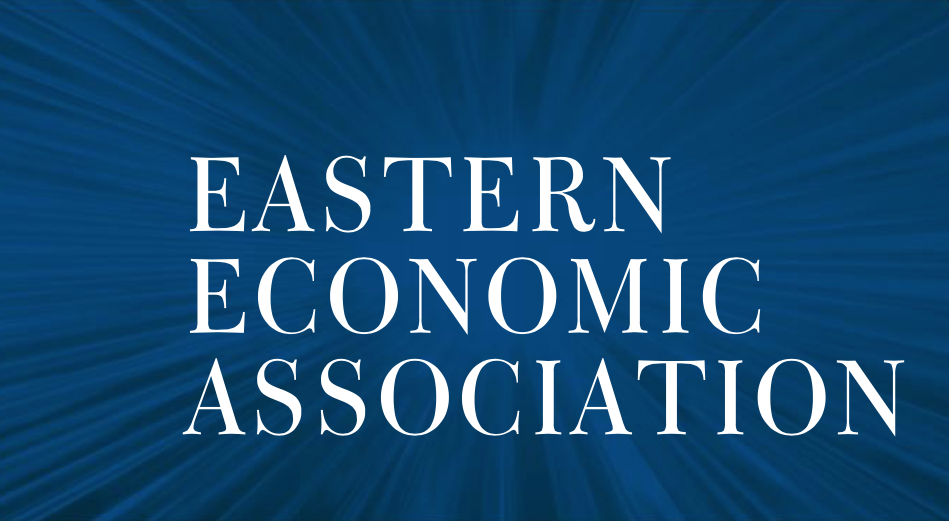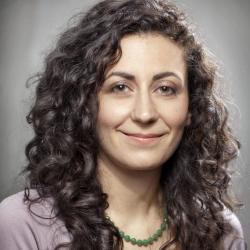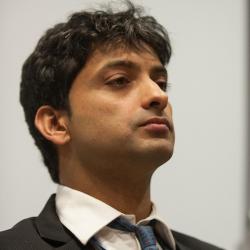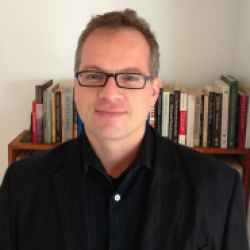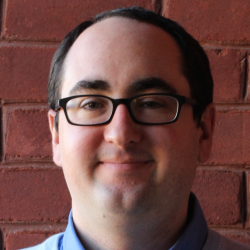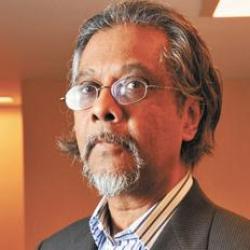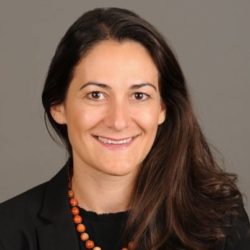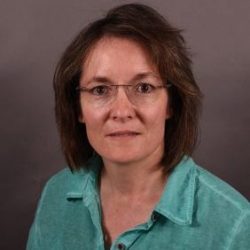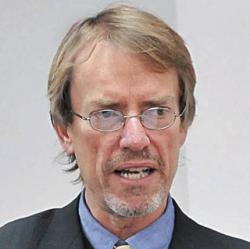(INET community members are bolded)
Friday, February 24, 8:00-9:20
Work, Earnings and Race during the Great Recession (JEL Code J, I)
Session Chair: Thomas Masterson, Levy Economics Institute
Session Organizer: Thomas Masterson, Levy Economics Institute
The Great Recession and Retirement Saving: What Can We Learn About Pre-Retirement “Raids” on Retirement Accounts from the Michigan Recession and Recovery Study?
Ngina Chiteji, New York University Gallatin School of Individualized Study & Wagner School of Public Service; Sheldon Danziger, Russell Sage Foundation
Earnings Risk Across the Earnings Distribution
Michael D. Carr, University of Massachusetts Boston; Emily E. Wiemersy, University of Massachusetts Boston
Revising the Racial Wage Gap: The Impact of Mass Incarceration
Jeannette Wicks-Lim, Political Economy Research Institute
African American Labor Market Engagement during the Great Recession
Thomas Masterson, Levy Economics Institute of Bard College
Friday, February 24, 8:00-9:20
Exchange Rates (JEL Code F)
Session Chair: Luiza Nassif Pires, New School for Social Research
Session Organizer: Michalis Nikiforos, Levy Economics Institute
Terms of Trade and Output Fluctuations: The Tax Structure Matters
Gonzalo Hernández, Universidad Javeriana; María Alejandra Prieto, Universidad Javeriana,.
Nominal Exchange Rate Shocks and Inflation in an Open Economy
Eduardo Bastian, IE-UFRJ; Mark Setterfield, New School for Social Research
Real Exchange Rate and Export Performance in Argentina 2002-2008
Gabriel Palazzo, University of Buenos Aires; Martín Rapetti, University of Buenos Aires
Discussants: Martín Rapetti, University of Buenos Aires; Eduardo Bastian, IE-UFRJ; Gonzalo Hernández, Universidad Javeriana
Friday, February 24, 8:00-9:20
The Economic History of Poverty and Inequality (JEL Code B)
Session Chair: Goncalo Fonseca, Institute for New Economic Thinking
Running in Place: Racial Income Inequality in the US and Brazil, 1960-2010
Justin Bucciferro, Eastern Washington University
Macroeconomic Implications of Inequality and Household Debt: European Evidence
Jonathan Perraton, University of Sheffield
Thomas Robert Malthus: False Prophet, Misconstrued Genius or Something in Between
Yeva Aleksanyan, Colorado State University; Steven Pressman, Colorado State University and Monmouth University
The New American Way: How Changes in Labor Laws are Affecting Inequality
Mark Stelzner, Connecticut College
Discussants: Goncalo Fonseca, Institute for New Economic Thinking; Steven Pressman, Colorado State University and Monmouth University; Neil Boyle, New School for Social Research; Mark Silverman, University of Massachusetts Amherst
Friday, February 24, 9:30-10:50
Themes in Macroeconomics (JEL Code E)
Session Chair: Michalis Nikiforos, Levy Economics Institute
Session Organizer: Michalis Nikiforos, Levy Economics Institute
Long-run Variation in Capacity Utilization in the Presence of a Fixed Normal Rate
Mark Setterfield, New School for Social Research
Distribution-utilization Interactions: The Global Perspective
Codrina Rada, University of Utah
A Theory of Economic Policy Lock-in and Lock-out via Hysteresis: Rethinking Economists’ Approach to Economic Policy
Tom Palley, AFL-CIO
Discussants: Tom Palley, AFL-CIO; Mark Setterfield, New School for Social Research; Codrina Rada, University of Utah
Friday, February 24, 11:00-12:20
Political Economy (JEL Code P)
Session Chair: Jonathan Cogliano, Dickinson College
Session Organizer: Michalis Nikiforos, Levy Economics Institute
The Role of Autonomous Non-Capacity Creating Expenditures in Recent Kaleckian Growth Models: An Assessment from the Perspective of the Sraffian Supermultiplier Model
Leandro Fagundes, Federal Rural University of Rio de Janeiro; Fabio Freitas, Federal University of Rio de Janeiro
Autonomous Demand, Harrodian Instability and the Supply Side
Peter Skott, UMass Amherst
The Principle of Social Scaling
Paulo L dos Santos, New School for Social Research
Discussants: Peter Skott, UMass Amherst; Fabio Freitas, Federal University of Rio de Janeiro; Greg Hannsgen, Greg Hannsgen’s Economics Blog and Levy Economics Institute
Friday, February 24, 1:00-2:20
Roundtable on The Future of Neoliberalism (JEL Code B)
Session Chair: Esteban Pérez-Caldentey, ECLAC Chile
Session Organizers: Matías Vernengo, Bucknell University; Esteban Pérez-Caldentey, ECLAC Chile
Roundtable Panelists
Robert Blecker, American University
Orsola Costantini, INET
Matías Vernengo, Bucknell University
Kim Phillips-Fein, New York University
Mark Weisbrot, CEPR
Friday, February 24, 1:00-2:20
20th Century Economic History (JEL Code N, D)
Session Chair: Mary Eschelbach Hansen, American University
Session Organizer: Mary Eschelbach Hansen, American University
The WWII Banking Curse
Andrew Bossie, New Jersey City University
Copper Commodity Price Action as a Global Transmission Channel of the London Financial Stringency in 1907
Mary Tone Rodgers, SUNY Oswego
The Effect of Federal Regulation on Local Bankruptcy Rates: The Consumer Credit Protection Act of 1968
Mary Eschelbach Hansen, American University; Bradley A. Hansen, University of Mary Washington
Discussants: Mary Eschelbach Hansen, American University; Bradley A. Hansen, University of Mary Washington; Mary Tone Rodgers, SUNY Oswego
Friday, February 24, 1:00-2:20
Growth and Distribution (JEL code E)
Session Chair: Ellis Scharfenaker, University of Missouri Kansas City
Session Organizer: Michalis Nikiforos, Levy Economics Institute
Two Class Distribution of Income in India: Evidence from 2012-13 Tax Data
Rishabh Kumar, New School for Social Research
Horizontal Inequality, Intersectionality, Growth and Distribution
Amitava K. Dutt, University of Notre Dame
Keeping up with the Joneses: Social Preferences and Growth
Daniele Tavani, Colorado State University; Luke Petach, Colorado State University
Discussants: Daniele Tavani, Colorado State University; Rishabh Kumar, New School for Social Research; Amitava K. Dutt, University of Notre Dame
Friday, February 24, 1:00-2:20
Designing a Heterodox Curriculum (JEL Code B)
Sixth of Eighteen Sessions Sponsored by the Union for Radical Political Economics (URPE)
Session Chair: Ron Baiman, Benedictine University
Session Organizer: Ron Baiman, Benedictine University
The Profound Implications of Continuing to Teach ‘Supply and Demand’ Instead of ‘Demand and Cost’ in Intro Economics Courses - an Unequal Exchange Application
Ron Baiman, Benedictine University
Developing Heterodox Economics Curriculum
Geert Dhondt, John Jay College of Criminal Justice
Can We Teach an Alternative Introduction to Microeconomics?
Gerald Friedman, University of Massachusetts Amherst
A Classical Political Economy Curriculum
Anwar Shaikh, New School for Social Research
Discussants: Scott Carter, University of Tulsa; Zoe Sherman, Merrimack College; Fatma Gul Unal, Hobart and William Smith Colleges
Friday, February 24, 2:30-3:50
History of Economic Thought (JEL Code B)
Chair: James Marshall, Muhlenberg College
Conceptions of the Natural and the Normative in Walras’s System
Mark Silverman, University of Massachusetts Amherst
Entrepreneurial Labor, Production Labor, Knowledge Labor: An Expanded Labor Theory of Value is Developed to Predict Market Prices
Neil Boyle, New School for Social Research
The Catena Reconsidered: Understanding Jevons’s Theory of Exchange and Production Goncalo Fonseca, Institute for New Economic Thinking
Two Landmark Intellectual Developments in the Year 1749
Farhad Rassekh, University of Hartford
Friday, February 24, 4:00-5:20
Agent-Based Computational Economics: Macroeconomic Networks (JEL Code E, C)
Fourth of Seven Sessions Sponsored by the New York City Computational Economics & Complexity Workshop
Session Chair: Leanne Ussher, University of Massachusetts Boston
Session Organizer: Leanne Ussher, University of Massachusetts Boston
Network Structure and Market Risk in the European Equity Market
Germán Creamer, Stevens Institute of Technology
Interconnectedness in the Global Financial Market
Matthias Raddant, Kiel Institute for the World Economy; Dror Y. Kenett, U.S. Department of the Treasury
Helicopters and the Neutrality of Money: An Essay in Loanable Fundamentalism
Cameron Harwick, George Mason University
Trade Credit Networks and Sample Statistics
Leanne Ussher, University of Massachusetts Boston
February 24, 4:00-5:20
Behavioral Entropy Models and Non-Parametric Inference (JEL Code C)
Session Chair: Rudi von Arnim, University of Utah
Session Organizer: Michalis Nikiforos, Levy Economics Institute
Quantal Response Equilibria in Economic Models
Ellis Scharfenaker, University of Missouri Kansas City; Duncan Foley, New School for Social Research
An Estimation of the Innovation Possibilities Frontier in the Entropy-Constrained Model of Induced Technical Change
Jangho Yang, New School for Social Research
Infinite-Variance in Vector Autoregression Residuals: Informal Non-Parametric Evidence
Greg Hannsgen, Greg Hannsgen’s Economics Blog and Levy Economics Institute
Discussants: Jangho Yang, New School for Social Research; Greg Hannsgen, Greg Hannsgen’s Economics Blog and Levy Economics Institute; Tai Young-Taft, Bard College at Simon’s Rock and Levy Economics Institute
Saturday, February 25, 8:30-9:50
Fiscal Policy and Government Finances (JEL Code B, E)
Session Chair: Stephanie Kelton, University of Missouri-Kansas City and Bard College
Session Organizer: Yeva Nersisyan, Franklin and Marshall College
Can the Government go Broke? An Examination of Hyman P. Minsky’s Position
L. Randall Wray, Bard College
Will Trumponomics Extend the Economic Recovery?
Stephanie Kelton, University of Missouri-Kansas City and Bard College
Do We Need to Eliminate “Bank Finance” of Government Spending? A Critical Assessment of ‘Debt-Free’ Money Proposals
Yeva Nersisyan, Franklin and Marshall College
Discussants: Pavlina Tcherneva, Bard College; Arturo Huerta, National Autonomous University of Mexico
Saturday, February 25, 8:30-9:50
Growth and Distribution (JEL Code E)
Session Chair: Luca Zamparelli, Sapienza University of Rome
Session Organizer: Michalis Nikiforos, Levy Economics Institute
Debt-Financed Human Capital Accumulation, Distribution and Growth
Laura Carvalho, University of São Paulo; Gilberto Tadeu Lima, University of São Paulo; Gustavo Pereira Serra, University of São Paulo
The Political Economy of Biased Technical Change in Brazilian Agriculture (1950-1980)
Joao Paulo A. de Souza, Middlebury College
Education and ‘Human Capitalists’ in a Classical-Marxian Model of Growth and Distribution Amitava K. Dutt, University of Notre Dame; Roberto Veneziani, Queen Mary University of London
Discussants: Roberto Veneziani, Queen Mary University of London; Gilberto Tadeu Lima, University of São Paulo; Joao Paulo A. de Souza, Middlebury College
Saturday, February 25, 8:30-9:50
Trade Theory, Capital Theory, and Classical Economics (JEL Code B)
Nineth of Eighteen Sessions Sponsored by the Union for Radical Political Economics (URPE)
Session Chair: Katherine Moos, New School for Social Research
Session Organizer: Scott Carter, University of Tulsa
Unequal Exchange or Absolute Cost Advantage? Evidence from the Trade Between Greece and Germany
Lefteris Tsoulfidis, University of Macedonia
Pasinetti on Economic Growth and Structural Change
Gary Mongiovi, St John’s University; Davide Gualerzi, Università di Padova
Capital Theory: Less is More
Lefteris Tsoulfidis, University of Macedonia
Sraffa and the Configuration of Exchange in Subsistence and Surplus Production: New Evidence from the Sraffa Archive
Scott Carter, University of Tulsa
Discussants: John Sarich, New York City Department of Finance; Anwar Shaikh, New School for Social Research; Scott Carter, University of Tulsa; Gary Mongiovi, St John’s University
Saturday, February 25, 10:00-11:20
Rise of the South or a Second Great Divergence (JEL Code F, O)
Session Chair: Amitava K. Dutt, University of Notre Dame
Session Organizers: Omar S. Dahi, Hampshire College; Firat Demir, University of Oklahoma
The Relevance of North-South Issues in the Post Great Recession World?
Arslan Razmi, University of Massachusetts Amherst
South-South Trade and Economic Development
Mwangi wa Gĩthĩnji, University of Massachusetts Amherst
Rise of the South or a Second Great Divergence
Amitava K. Dutt, University of Notre Dame
Discussants: Amitava K. Dutt, University of Notre Dame; Omar S. Dahi, Hampshire College, Firat Demir, University of Oklahoma
Saturday, February 25, 10:00-11:20
Financialization and Stabilization (JEL Code E)
Session Chair: Peter Phelps, University of Leeds
Determinants of Factor Shares in the U.S.: An 11 Equation Econometric Model
John Heim, SUNY Albany
Imperfect Competition, Secular Stagnation and Factor Shares
Gabriel Mathy, American University; Ignacio Gonzalez, Columbia University
Regional Financialisation and Financial Systems Convergence: Sectoral Evidence from the Banking Industry
Peter Phelps, University of Leeds
Macroeconomic Stabilization: The Case of Labor Market Policy
Ibrahim Tahri, New School for Social Research
Discussants: Jacob Jennings, California State University Chico; YoungJin Choi, Temple University; Walter Bazan Palomino, Fordham University; Wei Wang, Southwestern University of Finance & Economics
Saturday, February 25, 1:00-2:20
Federal Job Guarantee and the Universal Basic Income (JEL Code E)
Session Chair: Mark Paul, Duke University
Session Organizer: Mark Paul, Duke University
Against Universal Basic Income: When the Medicine is Worse than the Disease
Pavlina R. Tcherneva, Bard College
The Inadequacy of Basic Income Guarantee Proposals Under International Human Rights Law
Phil Harvey, Rutgers
Employment or Income Guarantee? Which Would do the Btter Job?
Gertrude Schaffner Goldberg, Emerita Adelphi University
Work and Income Beats Income Alone
Mark Paul, Duke University; William A. Darity, Duke University; Darrick Hamilton, New School for Social Research
Saturday, February 25, 1:00-2:20
Inequality: Theory and Measurement (JEL Code N, D)
Session Chair: Chu-Ping Vijverberg, College of Staten Island and CUNY Graduate Center
Session Organizer: Mary Eschelbach Hansen, American University
Aggregate Wealth and Its Distribution as Determinants of Financial Crises
Thomas Hauner, CUNY Graduate Center
Financial Development and Income Inequality in China – A Spatial Data Analysis
Samuel Moon Jung, Graduate Center CUNY and College of Staten Island; Chu-Ping Vijverberg, College of Staten Island and CUNY Graduate Center
The Source of Income Inequality in the United States
Gowun Park, Graduate Center CUNY
Credit Market Imperfection, Endogenous Labor Supply, and the Kuznets Curve
George Vachadze, College of Staten Island and CUNY Graduate Center
Discussants: George Vachadze, College of Staten Island and the CUNY Graduate Center; Gowun Park, Graduate Center CUNY; Samuel Moon Jung, Graduate Center CUNY; Thomas Hauner, CUNY Graduate Center
Saturday, February 25, 2:30-3:50
Issues in Financialization (JEL Code E, F)
Session Chair: L. Randall Wray, Bard College
Session Organizer: Yeva Nersisyan, Franklin and Marshall College
Financialization and Labor Rights: An Empirical Investigation
Pavlina R. Tcherneva, Bard College
Globalization, Financialization and Fragility: The Case of Mexico
Arturo Huerta, National Autonomous University of Mexico
The Evolution of Commercial Bank Money Management Products (MMPs) in China
Xinhua Liu-Wray, Shaanxi Normal University Xi’an
Discussant: Yeva Nersisyan, Franklin and Marshall College
Saturday, February 25, 2:30-3:50
Debt Dynamics (JEL Code H)
Session Chair: Xiao Jiang, Denison University
Session Organizer: Michalis Nikiforos, Levy Economics Institute
The Dynamics of State and Local Debt
Arjun Jayadev, Azim Premji University; J. W. Mason, John Jay College CUNY; Amanda Page- Hoongrajok, University of Massachusetts-Amherst
The Treatment of Household Debt in the Post Keynesian Tradition
Joelle Leclaire, SUNY Buffalo State
Understanding the Rise of Household Debt in US: Post-Keynesian v.s. Mainstream
Yun K. Kim, University of Massachusetts Boston
Discussants: Yun K. Kim, University of Massachusetts Boston; J. W. Mason, John Jay College CUNY; Joelle Leclaire, SUNY Buffalo State
Saturday, February 25, 2:30-3:50
Negative Interest Rates in the Aftermath of the Crisis: Solution or Trap? (JEL Code E)
Session Chair: Guillaume Vallet, University of Grenoble Alpes
Session Organizer: Louis-Philippe Rochon, Laurentian University
Silvio Gesell: A Strange, Unduly Neglected Monetary Theorist
Cordelius Ilgmann, Thuringian Ministry of Economic Affairs, Science and Digital Society
The Problem of Low Interest Rate Environments - Keynes’ Influence on the Design of the Australian Monetary Policy Framework, 1935-45
Peter Docherty, University of Technology Sydney
The Negative Interest Rates Trap: Evidence from Two Countries/a PK Approach
Louis-Philippe Rochon, Laurentian University; Guillaume Vallet, University of Grenoble Alpes
Uncertainty and its Links to Low/Negative Interest Rates
Roderick O’Donnell, University of Technology Sidney Discussants: From among Presenters and Attendees
Saturday, February 25, 4:00-5:20
Teaching Heterodox Economics after the Crisis (JEL Code A, E)
Session Chair: Louis-Philippe Rochon, Laurentian University
Session Organizer: Louis-Philippe Rochon, Laurentian University
New Graduate Attributes as Well as New Content: How Pluralist Economics opens up Better Teaching Goals and Methods than Orthodoxy
Rod O’Donnell, University of Technology Sydney
Crisis in the Classroom: What we’ve Learned from Teaching and Assessing Introductory
Economics Courses Survey
Aleksandr V. Gevorkyan, St-John’s University; Greg Randolph, Southern New Hampshire University
Teaching Economics as if Distribution did not Matter
Roy Rotheim, Skidmore College
Saturday, February 25, 4:00-5:20
Topics in Economic History (JEL Code B)
Session Chair: Mark Stelzner, Connecticut College
The Labor Injunction and Peonage: How Changes in Labor Laws Increased Inequality during the Gilded Age
Mark Stelzner, Connecticut College
Unerseebooten in the First World War
Bruce McClung, Texas State University
Scrope, The Classical Economists and Free Banking
Paul Orzechowski, College of Staten Island CUNY
Germany’s Economic Recovery under Hjalmar Schacht 1933 – 1937
Jay Pocklington, INET
Discussants: Donald Richards, Indiana State University; Tuna Baskoy, Ryerson University; Jennifer Withrow, University of Massachusetts Amherst; Sergia Coffey, Suny Empire State College
Sunday, February 26, 10:00-11:20
Economic Methodology (JEL Code B)
Session Chair: James Marshall, Muhlenberg College
Conceptions of Rationality: Thick, Thin and Ancient
Donald Richards, Indiana State University
Theorizing the State in Post Keynesian Economics
Tuna Baskoy, Ryerson University
Economic Policy When Society Holds Non-Consequentialist Views of the Good
David Fairris, University of California
Discussants: Bruce McClung, Texas State University; Jay Pocklington, INET; Paul Orzechowski, College of Staten Island CUNY
